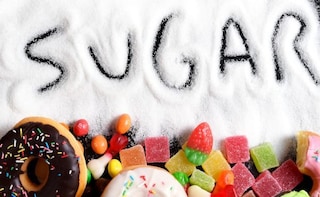The World Health Organization (WHO) recommends that we should be eating fewer than 50 grams (equivalent to around 12 teaspoons) of ‘free’ or added sugar a day. Eating less added sugar – roughly 25 grams (6 teaspoons) per day – is even better for our health. To put that in context, 375mL of soft drink can contain around 10 teaspoons of sugar.
Advertisement
Advertisement
Advertisement
For the latest food news, health tips and recipes, like us on Facebook or follow us on Twitter and YouTube.
Advertisement
